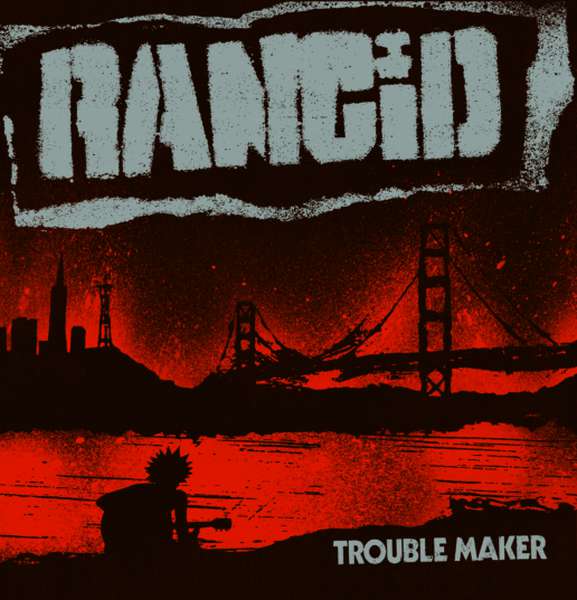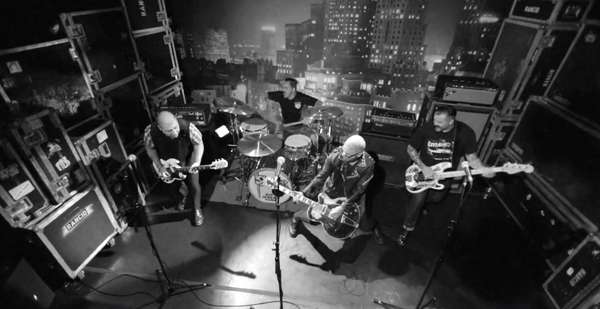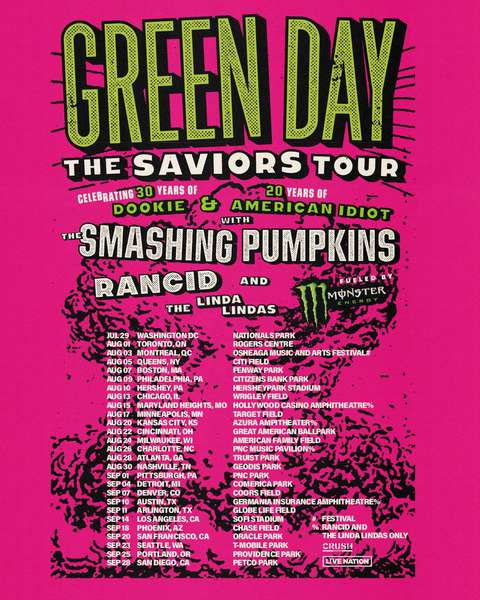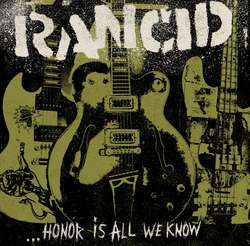It’s strange to me to realize that Rancid just released their ninth album. It’s a mark of age, not to mention that they haven’t been the most productive band on the block since the 3-year spree of LPs 1-3 from 1993-1995. Mostly it just makes me feel old, which is also how their last album, (the disappointing) Honor Is All We Know made me feel. Trouble Maker is a surprising rejuvenation.
Honor Is All We Know felt uninspired. This time around, the band has energy and all manner of tempos over 17 songs. There is the hard-edged “This Is Not the End,” with shades of Rancid 2000 (aka Rancid V aka the second self-titled album), ska (“Where I’m Going”), East Bay biographical songs (“Telegraph Avenue”), big harmonies (“Farewell Lola Blue”), and plenty of sing-alongs (“Make It Out Alive”) – all in that patent Rancid key. Tim and Lars trade most of the vocals equally, Matt does some showy stuff on bass, and drummer Branden Steineckert, now on his third LP with the band, holds down the kit. Tim’s vocals are the strongest they’ve been in some time.
While I applaud the group’s tonal approach to records in the post-…And Out Come the Wolves era, dedicating entire records to certain sub-styles (Life Won’t Wait, V, etc.), Trouble Maker really feels like it moves the band forward while exploring their collective songwriting style. It doesn’t sound like they’re putting out a record for the sake of it, but are actively taking their sound and adding some new flair. The title track is a nice example. Matt’s rumbling bass interplays with Tim’s playful lyricism, then the group chorus and harmonies kick it up. It follows the formula of some of their best work. It’s familiar and classic Rancid, yet an entirely new song that doesn’t directly bring flashes of older songs to mind.
It’s not to say the record is perfect. A few songs have direct shades of the band’s back catalog, with familiar breakdowns and referential lyrical snippets. Similarly, Trouble Maker continues with some of the lyrical ambiguity that’s plagued recent albums. “Say Goodbye to our Heroes,” is a glaring example, in how it pays homage to “heroes” without naming a single person or characteristic that was admirable (unless spitting counts).There’s no depth beyond the sing-along chorus.
Ultimately, this is a return to form and inspires confidence in the band’s future. It’s not their best material, but it may be the best thing they’ve done since 2000. V shares a title with their self-titled debut (1993), while this album reincarnates their original logo from the 1993 release. Apparently there’s a hidden theme in there after all.







